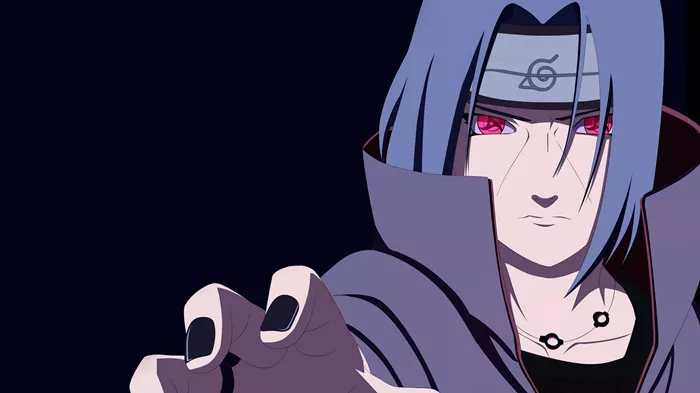Itachi Uchiha, a complex and enigmatic character in the acclaimed anime and manga series Naruto, remains one of the most intriguing figures in the narrative. Renowned for his prodigious talent, stoic demeanor, and controversial actions, Itachi’s role in the massacre of the Uchiha clan casts a shadow over his legacy. This article delves into the intricate layers of Itachi’s character and explores the question: Did Itachi regret killing the Uchiha clan?
Itachi Uchiha
Character Background
Itachi Uchiha is a member of the Uchiha clan, one of the most powerful and prestigious families in the Hidden Leaf Village (Konohagakure). From a young age, Itachi displayed exceptional talent as a ninja, earning recognition as a prodigy among his peers.
The Massacre of the Uchiha Clan
One of the most significant events in Itachi’s life is his involvement in the massacre of the Uchiha clan. This tragic event, orchestrated by Itachi under the orders of Konoha’s leadership, resulted in the deaths of his family and relatives, leaving Itachi burdened with guilt and remorse.
Understanding Itachi’s Motivations
Protecting the Village
Itachi’s decision to eliminate the Uchiha clan was motivated by a desire to prevent a coup d’état that threatened the stability of the Hidden Leaf Village. Fearing the consequences of a Uchiha uprising, Itachi chose to carry out the mission in the belief that it was necessary to protect the village and prevent a potential civil war.
Sacrifice for Peace
Itachi viewed his actions as a sacrifice for the greater good, willing to bear the burden of becoming a pariah and traitor in exchange for maintaining peace and stability in the village. His allegiance to Konoha and his commitment to its ideals compelled him to make the difficult choice, despite the personal cost.
The Complexity of Itachi’s Emotions
Guilt and Remorse
Despite his conviction in the necessity of his actions, Itachi is haunted by feelings of guilt and remorse for his role in the massacre. The weight of the lives he took, including those of his family members, weighs heavily on his conscience, leading to moments of inner turmoil and anguish.
Internal Conflict
Itachi’s internal conflict is a recurring theme throughout the series, as he grapples with the moral implications of his choices and the consequences of his actions. His stoic facade masks a tumultuous inner struggle, as he wrestles with the conflicting demands of duty and morality.
Revelations and Redemption
Revelation to Sasuke
In a pivotal moment during the series, Itachi reveals the truth of his actions to his younger brother, Sasuke Uchiha. Through a series of confrontations and revelations, Itachi seeks to impart wisdom to Sasuke and guide him on a path of redemption and understanding.
Sasuke’s Perspective
Sasuke’s discovery of the truth about Itachi’s motives and the circumstances surrounding the massacre prompts a profound shift in his perception of his brother. Initially driven by a desire for revenge, Sasuke comes to empathize with Itachi’s plight and the sacrifices he made for the sake of the village.
Itachi’s Legacy and Reflections
Legacy of Sacrifice
Itachi’s legacy is defined by his willingness to sacrifice his own happiness and reputation for the sake of others. His actions, though controversial and morally ambiguous, are ultimately driven by a sense of duty and a desire to protect those he cares about.
Eternal Struggle
Itachi’s journey serves as a cautionary tale about the complexities of morality and the consequences of one’s choices. His eternal struggle with guilt and remorse underscores the human capacity for both good and evil, challenging viewers to confront the shades of gray in the world.
The Quest for Redemption
Throughout the series, Itachi’s quest for redemption is a central theme, as he seeks to atone for his sins and find solace in the knowledge that his sacrifices were not in vain. His interactions with Sasuke and his efforts to impart wisdom serve as a testament to his enduring humanity.
Conclusion: Did Itachi Regret Killing the Uchiha Clan?
The question of whether Itachi regretted killing the Uchiha clan is a complex and nuanced one. While Itachi’s actions were driven by a sense of duty and a desire to protect the Hidden Leaf Village, he is burdened by guilt and remorse for the lives he took, including those of his family members. Despite his inner turmoil, Itachi’s legacy is defined by his unwavering commitment to sacrifice for the greater good and his enduring quest for redemption. In the end, Itachi’s story serves as a poignant reminder of the human capacity for both heroism and tragedy, challenging viewers to wrestle with the moral complexities of his choices and their lasting impact on the world of Naruto.

